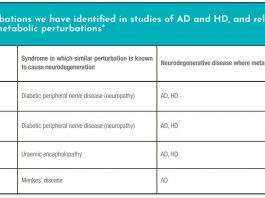Researchers at Karolinska Institutet, Sweden, report that the long-term use of proton pump inhibitors could increase the risk of developing dementia.
Millions of people use acid suppressants called proton pump inhibitors for conditions such as heartburn, gastritis, and stomach ulcers. Neurobiologists at Karolinska Institute have published in the journal Alzheimer’s & Dementia that proton pump inhibitors could be a potential factor in the development of dementia.
Proton pump inhibitors block the pumps that transport acidic hydrogen ions from the cells that form the mucosa. When the pump is disabled, there is a reduction in acid, minimising its damage to the tissue. Population studies have previously shown higher rates of dementia in people using this drug.
Taher Darreh-Shori, senior researcher at the Department of Neurobiology, Care Sciences and Society, Karolinska Institutet, said: “We’ve been able to show that proton pump inhibitors affect the synthesis of the neurotransmitter acetylcholine, which plays a significant part in conditions such as Alzheimer’s disease. Since there is no effective treatment for the disease, it’s important to avoid risk factors. We therefore want to draw attention to this so that the drugs aren’t used needlessly for a long time.”
Analysing the effect of proton pump inhibitors
The researchers used 3D computer simulations to examine how six proton pump inhibitors variants based on different active substances interacted with an enzyme called choline acetyletransferase, the function of which is to synthesise the neurotransmitter acetylcholine. As a neurotransmitter, acetylcholine is needed for passing signals among nerve cells, but this only works if enough of the substance is produced. The simulations showed that all the tested drugs were able to bind with the enzyme.
The researchers then analysed the effect of this binding. They found that all the drugs inhibited the enzyme, resulting in a reduced production of acetylcholine, where the stronger the binding, the stronger the inhibitory effect. Drugs based on the active substances omeprazole, esomeprazole, tenatoprazole, and rabeprazole had the greatest affinity and were therefore the strongest inhibitors of the enzyme, while the variants pantoprazole and lansoprazole were the weakest.









